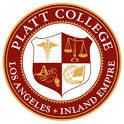What do they do?
Produce ultrasonic recordings of internal organs for use by physicians. Includes vascular technologists.
Also known as:
Cardiac Sonographer, Cardiovascular Sonographer, Diagnostic Medical Sonographer, Echo Tech (Echocardiographic Technician), Medical Sonographer, Registered Diagnostic Cardiac Sonographer, Registered Diagnostic Medical Sonographer (RDMS), Sonographer, Staff Sonographer, Ultrasonographer, Ultrasound Technician (Ultrasound Tech), Ultrasound Technologist (Ultrasound Tech), Vascular Sonographer
-
11.6%
Change
Ranks #48 in job growth rate240Job Openings
Ranks #7 in net job growth
Looking for colleges that offer a specific major? Use the College Match Tool to find your best-matched schools and discover your estimated Net Price!
- Bachelor's degree (39%)
- Associate's degree (34%)
- Some college, no degree (10%)
- Master's degree (9%)
- High school diploma equivalent (4%)
- Doctorate or Professional Degree (2%)
- Less than high school diploma (1%)
People in this career often have these skills:
- Active Listening - Giving full attention to what other people are saying, taking time to understand the points being made, asking questions as appropriate, and not interrupting at inappropriate times.
- Reading Comprehension - Understanding written sentences and paragraphs in work-related documents.
- Speaking - Talking to others to convey information effectively.
- Social Perceptiveness - Being aware of others' reactions and understanding why they react as they do.
- Critical Thinking - Using logic and reasoning to identify the strengths and weaknesses of alternative solutions, conclusions, or approaches to problems.
- Monitoring - Monitoring/Assessing performance of yourself, other individuals, or organizations to make improvements or take corrective action.
- Active Learning - Understanding the implications of new information for both current and future problem-solving and decision-making.
- Time Management - Managing one's own time and the time of others.
People in this career often know a lot about:
- Customer and Personal Service - Knowledge of principles and processes for providing customer and personal services. This includes customer needs assessment, meeting quality standards for services, and evaluation of customer satisfaction.
- English Language - Knowledge of the structure and content of the English language including the meaning and spelling of words, and rules of composition and grammar.
- Physics - Knowledge and prediction of physical principles, laws, their interrelationships, and applications to understanding fluid, material, and atmospheric dynamics, and mechanical, electrical, atomic and sub-atomic structures and processes.
- Medicine and Dentistry - Knowledge of the information and techniques needed to diagnose and treat human injuries, diseases, and deformities. This includes symptoms, treatment alternatives, drug properties and interactions, and preventive health-care measures.
- Administrative - Knowledge of administrative and office procedures and systems such as word processing, managing files and records, stenography and transcription, designing forms, and workplace terminology.
People in this career often have talent in:
- Oral Comprehension - The ability to listen to and understand information and ideas presented through spoken words and sentences.
- Written Comprehension - The ability to read and understand information and ideas presented in writing.
- Oral Expression - The ability to communicate information and ideas in speaking so others will understand.
- Problem Sensitivity - The ability to tell when something is wrong or is likely to go wrong. It does not involve solving the problem, only recognizing that there is a problem.
- Near Vision - The ability to see details at close range (within a few feet of the observer).
- Written Expression - The ability to communicate information and ideas in writing so others will understand.
- Speech Clarity - The ability to speak clearly so others can understand you.
- Inductive Reasoning - The ability to combine pieces of information to form general rules or conclusions (includes finding a relationship among seemingly unrelated events).
- Arm-Hand Steadiness - The ability to keep your hand and arm steady while moving your arm or while holding your arm and hand in one position.
- Control Precision - The ability to quickly and repeatedly adjust the controls of a machine or a vehicle to exact positions.
- Speech Recognition - The ability to identify and understand the speech of another person.
- Deductive Reasoning - The ability to apply general rules to specific problems to produce answers that make sense.
- Flexibility of Closure - The ability to identify or detect a known pattern (a figure, object, word, or sound) that is hidden in other distracting material.
People in this career often do these activities:
- Monitor video displays of medical equipment to ensure proper functioning.
- Adjust settings or positions of medical equipment.
- Monitor patient conditions during treatments, procedures, or activities.
- Communicate test or assessment results to medical professionals.
- Position patients for treatment or examination.
- Operate diagnostic imaging equipment.
- Create advanced digital images of patients using computer imaging systems.
- Explain medical procedures or test results to patients or family members.
- Prepare patients physically for medical procedures.
- Analyze test data or images to inform diagnosis or treatment.
- Gather medical information from patient histories.
- Record patient medical histories.
- Process x-rays or other medical images.
- Prepare official health documents or records.
- Collaborate with healthcare professionals to plan or provide treatment.
- Assist healthcare practitioners during surgery.
- Examine medical instruments or equipment to ensure proper operation.
- Clean medical equipment or facilities.
- Repair medical facility equipment.
- Schedule patient procedures or appointments.
- Maintain medical facility records.
- Perform clerical work in medical settings.
- Train medical providers.
- Supervise patient care personnel.
- Treat medical emergencies.
- Implement advanced life support techniques.
- Prepare medical supplies or equipment for use.
- Maintain inventory of medical supplies or equipment.
- Order medical supplies or equipment.
This page includes data from:

 Occupation statistics: USDOL U.S. Bureau of Labor Statistics Occupational Employment Statistics
Occupation statistics: USDOL U.S. Bureau of Labor Statistics Occupational Employment Statistics
 Videos: CareerOneStop, USDOL/ETA and the Minnesota Department of Employment & Economic Development
Videos: CareerOneStop, USDOL/ETA and the Minnesota Department of Employment & Economic Development



























